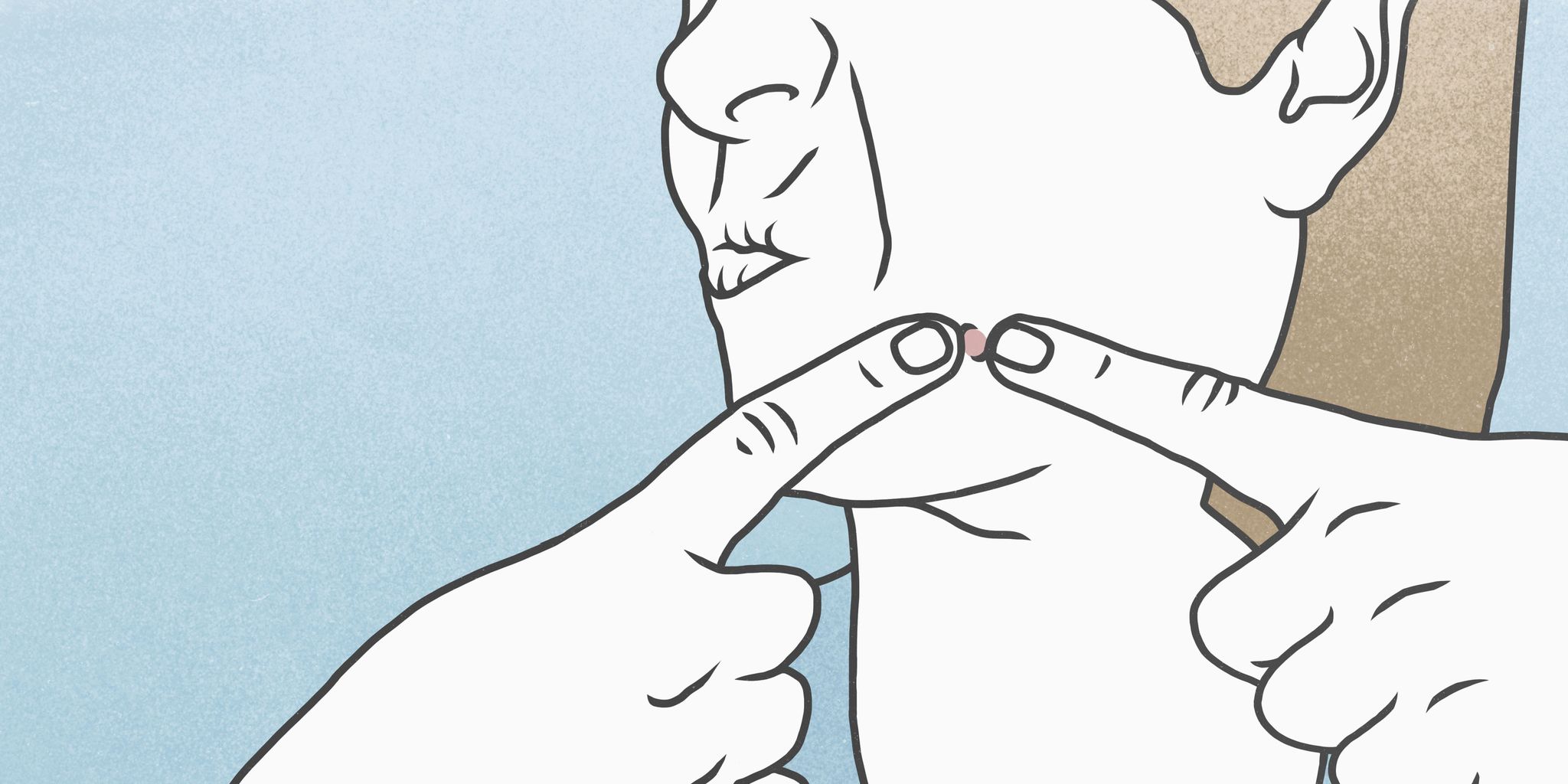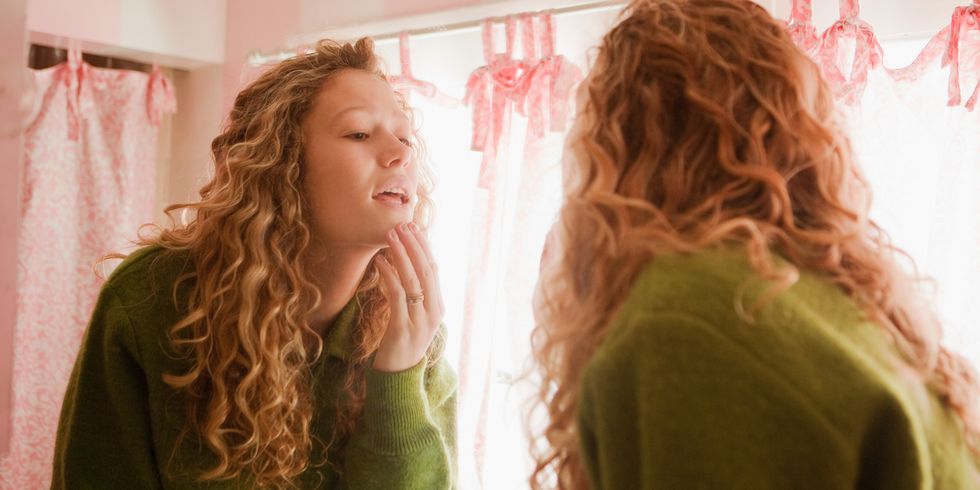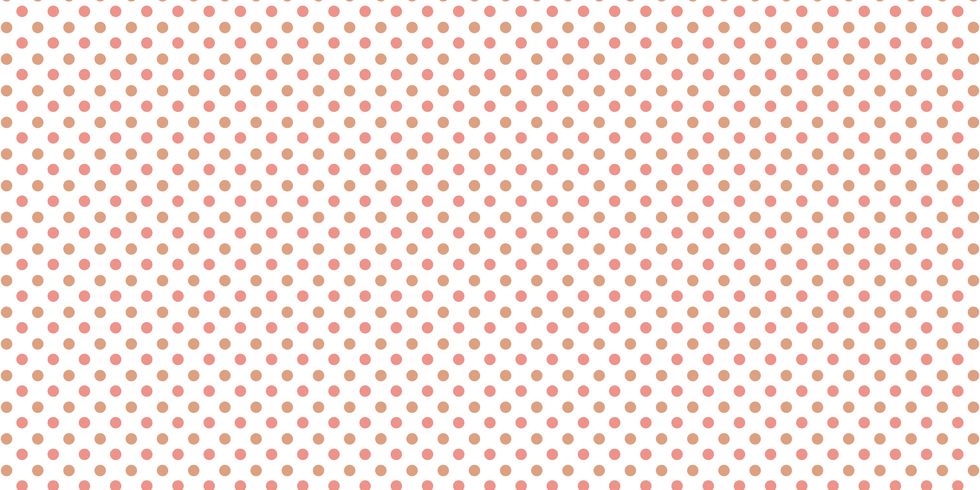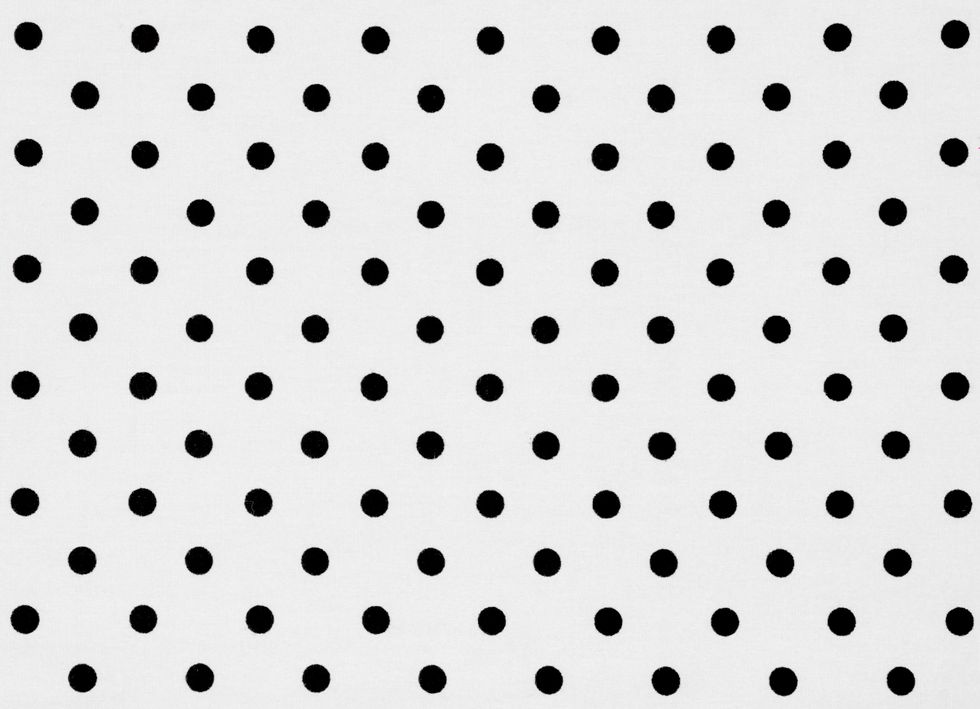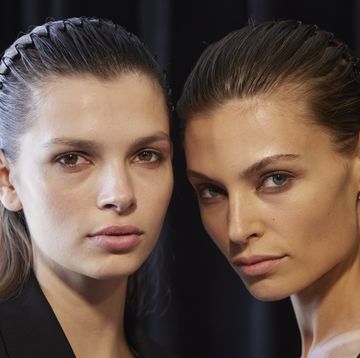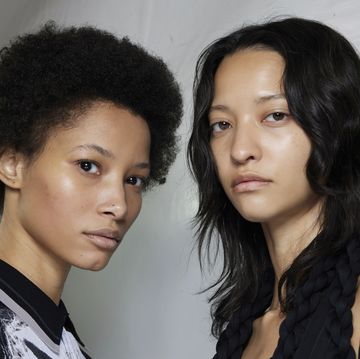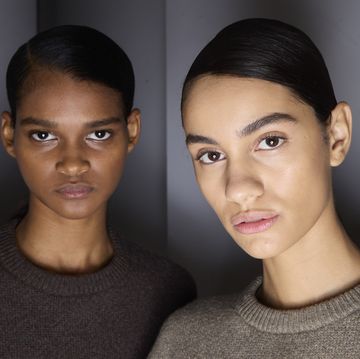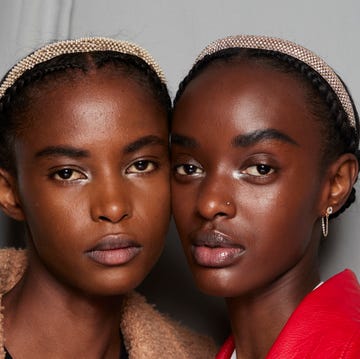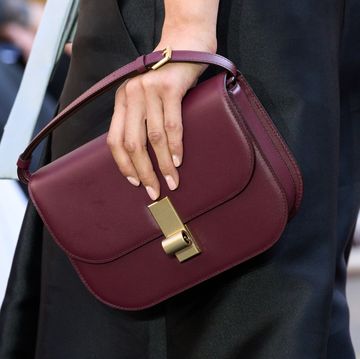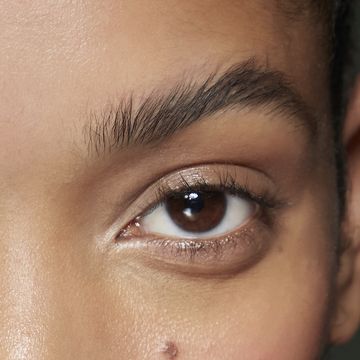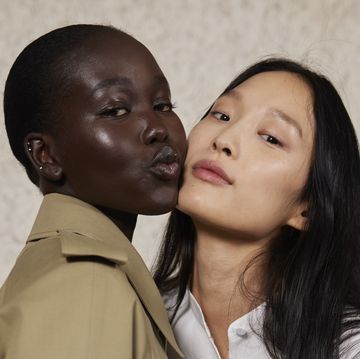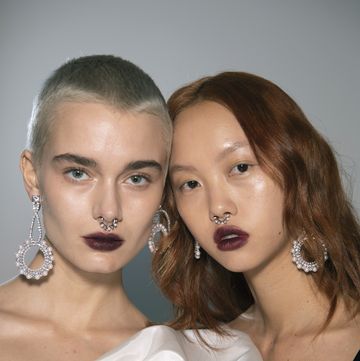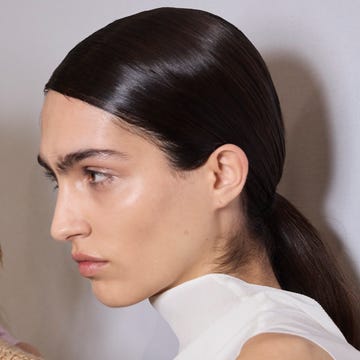Whenever we feel the urge to pick a spot, we're reminded of our obsessive re-watching of The Princess Switch, i.e. we know it's wrong, but we'll be damned if it's not happening anyway.
But with a lifetime of teen magazines - not to mention the blotchy red protest on our face - telling us that attacking that pimple is a total no go, is there ever a right way to pop your own spots?
We caught up with spot picker pro Dr Sandra Lee, aka Dr Pimple Popper, for everything you need to know to give that whitehead the old heave ho.
For when that stubborn spot feels like it might just eclipse your entire face, follow the below:
'I will be like every other dermatologist and tell you that you really shouldn't pop any spots yourself, because of the risk of infection and permanent scarring. But, I know that many of you can't help yourselves!
'If you really MUST, don't pop anything on your face unless it's the most superficial it can be on the skin aka closest to the actual surface when it has come to a white/yellow 'head'. If the pimple has a head, at that point it's the easiest to extract, with the least risk of scarring and lowest risk of infection because the bump is very superficial to the surface of the skin.'
'You should never pop cysts and nodules, the more severe form of acne, as this can cause inflammation, cysts also have a far higher risk of scarring'
'Popping a spot can often lead to quicker resolution of the pimple IF the all the purulent contents are extracted. The problem is if it's not ready to pop (too early) or the pimple isn't squeezed completely, if can often swell more, with increased pain, and can grow instead into an even bigger problem. Too early a squeeze, mo pimple, mo problems…'
'If pimples are popped at home without care or following the below steps it can lead to scarring or infection.'
1. Sterilise the area and be sure to have clean tools, hands, and environment.
2. Wash your face with warm water, or better yet, take a steamy shower, to really open up the pores. It helps soften up the debris and dead skin cells within your pores.
3. Use your fingers or the Dr. Pimple Popper Comedone Extractor - as I most often use in my videos - to place pressure on the skin immediately surrounding the whitehead or blackhead, to push the contents out. If using fingers, increase traction by wrapping clean tissue paper around the fingers applying pressure.
4. A whitehead should come out pretty easily if it's ready, but if the pimple is not popping, there's definitely a time to give up.
TOP TIP: Sometimes it can't be popped at all because it's not actually a pimple, and this is when you need a dermatologist to evaluate. Know when to pop and when to stop.
If you have fair skin... you may get post inflammatory erythema after squeezing a pimple, or any trauma to the skin for that matter, such as a scratch or a bug bite.
If you have darker skin... you tend to get post-inflammatory hyper-pigmentation which could leave darker patches. In general this resolves over time, but can take a few months or more depending on the severity of the 'trauma'.
'A great acne spot treatment like my Dr Pimple Popper spot treatment with Salicylic acid, or the SLMD acne spot treatment with benzoyl peroxide are great to help prevent bacteria and dirt from repopulating the pimple area, and also serve as a reminder for you to keep your hands off the spot and let it calm down. Ice also can help decrease redness and inflammation.'
